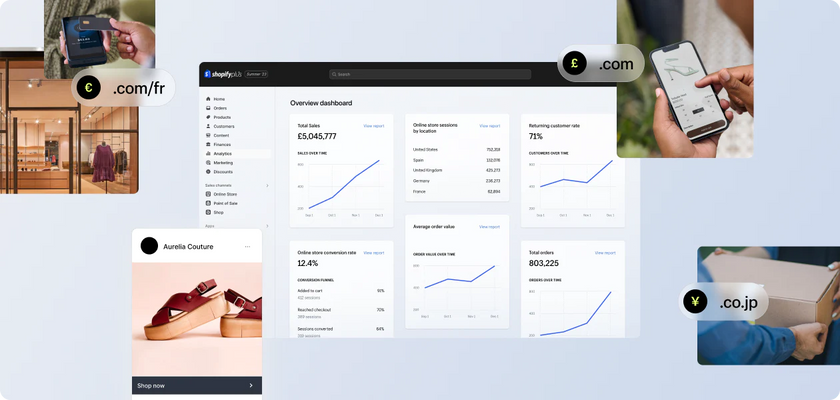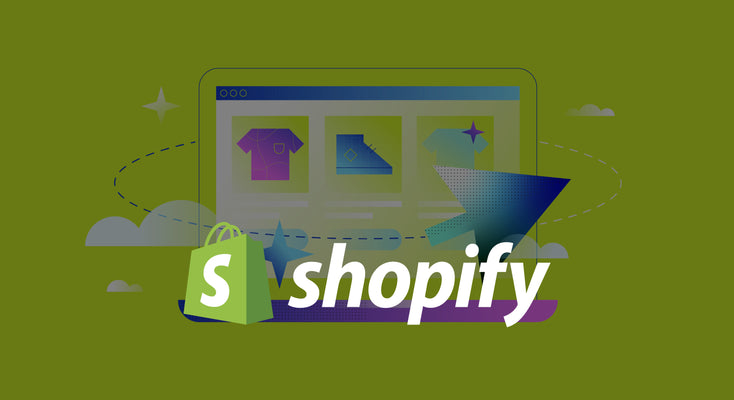Dec 11,2019 Juno Ecommerce
Inbound marketing vs outbound marketing: What’s the difference?

If there’s one thing marketers love to talk about, it’s inbound marketing. As buzzwords go, it’s up there with sales funnel, customer journey and omnichannel.
Coined by HubSpot’s co-founder Brian Halligan back in 2005, the concept of inbound marketing is still relatively new. After gaining popularity in the early 2010s, inbound marketing quickly became the new obsession amongst stressed-out marketing teams, acting as a holy grail in a world of ad blockers. On the flip side, outbound marketing quickly garnered a negative reputation as something outdated and ineffective.
As with most debates relating to marketing trends, the talk around inbound and outbound marketing is filled with hyperbole. Inbound is the magic answer to everything, outbound is pointless, and advertising is dead. But how much truth is there in that?
We’ve scrapped the jargon and taken an in-depth look at these two different marketing strategies, including their pros, cons and where they overlap.
What is outbound marketing?
Outbound marketing refers to any kind of marketing that pushes itself in front of an audience. It’s the messages you send out to prospective customers, whether they want to hear from you or not. And, although it’s often lambasted by marketers as being outdated and ineffective, this kind of marketing is everywhere – from billboards to banner ads and beyond. It’s become so insidious, we’re almost blind to it.
Examples of outbound marketing include:
- TV & radio adverts
- Podcast & YouTube ads
- Billboards
- Cold emailing
- Sponsored social media ads
- Retargeting
- Direct mail (brochures, catalogues, etc)
- Print advertisements (magazines, newspapers)
- Display & banner ads
- Pop-ups
- Trade shows
- Cold calling
- Press releases
Before the rise of the digital age – and, with it, an oversaturation of ads – outbound marketing was known as just, well, marketing. There were no push notifications, no emails, no blogs, no chance for retargeting or SEO – there were ads, and there was word of mouth. That’s it.
But as brands got more tech-savvy and started hurling out ads every which way, the inevitable happened: users got bored, and started tuning them out.
Enter inbound marketing.
What is inbound marketing?
Inbound marketing is essentially the opposite of outbound marketing. Often referred to as content marketing, inbound marketing encompasses things like blog posts, email newsletters, social media posts and video series. Rather than pushing itself in front of an audience, it sits quietly in the background, waiting for users to be ready to hear the message and engage with the content.
Examples of inbound marketing include:
- Website content
- Social media posts
- Opt-in email marketing
- Search engine optimisation
- Blog posts
- Whitepapers, webinars & downloadable guides
- Ebooks
- Case studies
- Video marketing
- Podcasts
One of the biggest differences between inbound and outbound marketing is that inbound marketing doesn’t arrive with an obvious sales pitch, if it has any at all. It’s about putting out the messages users want to hear – that they’ll find genuinely useful or interesting in some way. For example, if you’re a fashion brand, you might create a blog post about the biggest trends to look out for in spring/summer 2020, or a behind-the-scenes video at a fashion event. It’s the content that makes them like, share and comment, and leaves them with a great impression of your brand.
Inbound marketing vs outbound marketing
Not only is inbound marketing essential in today’s uber-competitive market, but it’s also a lot more cost-effective than traditional marketing methods. According to Hubspot, inbound marketing is around 62% less expensive than outbound strategies. What’s more, because your audience is in a position where they’re ready and open to hearing your message, it can also result in a much higher ROI. If you’re marketing to customers on your website, your social media feed or your email newsletter, it means they’ve chosen to hear from you – so your message is much more likely to have an impact.
Conversely, outbound marketing can be incredibly expensive – often with little reward. Almost half of direct mail goes unopened, the response rate for banner ads is less than one-tenth of a percent, and – with the possible exception of the John Lewis Christmas advert – 86% of people skip past TV ads.
Inbound marketing also acts as a nice antidote to the outbound marketing we’re all bombarded with every single day. With the average person exposed up to 10,000 ads a day, inbound marketing offers users a way to engage with your brand that’s not just adding to the white noise of ads. Plus, with the arrival of ad blocker and paid, ad-free subscriptions to platforms like Spotify, there’s a good chance your ad would have never been seen anyway.
This is the bit where you’d expect us to say inbound marketing is the clear winner. Unfortunately, it’s not that easy.
Although inbound marketing is often more effective, those effects can be incredibly hard to measure. Someone might make a purchase because of a blog post they saw a month before, or follow your brand on social media for a year before buying anything. Without the hard sell, it can be difficult to tell exactly what’s working, and how.
Traditional marketing techniques can definitely feel antiquated – after all, who’s still buying things in response to cold calling? What person isn’t muting or fast-forwarding their TV ads – if they’re even watching TV at all? But that doesn’t mean all outbound marketing methodology is dead. Far from it.
For building name recognition alone, outbound marketing is still an important part of any brand’s marketing strategy. As with inbound marketing, it’s an effect that’s hard to measure – but that doesn’t mean it’s not working, bubbling away slowly at the back of someone’s mind.
A great example of this slow-burn is the SEO tool Ahrefs. They invested almost $15,000 in sponsoring podcasts, resulting in a dismal total of 11 trial sign-ups. That’s almost $1.3k per sign-up. At first, the team at Ahrefs declared it an epic failure. But eventually, they noticed more and more people mentioning hearing about Ahrefs on their favourite podcast, and thinking it seemed like a cool idea. Most of these people didn’t convert at the time, and some of them weren’t even in marketing. But the name recognition was there, building momentum.
This quote from one of their team members says it perfectly:
“We were going about it all wrong — rather than being a tool for lead generation, podcast advertising is a tool for gaining exposure and brand awareness.”
Rebeka Bek, UX writer at Ahrefs
And it’s not just the brand recognition that keeps outbound marketing relevant. New technology – such as retargeting pixels, interactive ads and real-time data – means that outbound marketing can be much more targeted to individual users, giving ads the same kind of context that makes inbound marketing so effective. For example, pilsner giant Stella Artois used a real-time weather data plug-in to trigger Liveposter ads for the brand’s Cidre, meaning that the adverts only showed when the temperature was two degrees above the national average – effectively establishing themselves as the drink of the summer. The result was a 65.6% increase in year-on-year sales during the time they ran the weather-responsive ads.
So, who wins?
Inbound marketing is definitely cheaper and, often, much more effective. But that doesn’t mean you should ignore outbound marketing entirely – just don’t throw your whole budget at it. Give inbound marketing the same weight – if not more – when you’re planning your 2020 marketing strategy. And, when it comes to your outbound strategy, make sure it’s as targeted and contextual as possible. The technology’s there, ready and limitless – you just have to use it.


